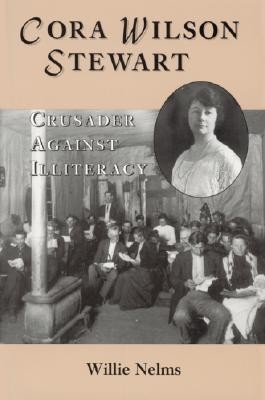
- We will send in 10–14 business days.
- Author: Willie Nelms
- Publisher: McFarland & Company
- ISBN-10: 0786403349
- ISBN-13: 9780786403349
- Format: 15.1 x 22.6 x 1.3 cm, minkšti viršeliai
- Language: English
- SAVE -10% with code: EXTRA
Reviews
Description
In 1911 Cora Wilson Stewart founded the Moonlight Schools in Rowan County, Kentucky, an innovative night program that taught illiterate adults to read. Hoping that 150 people would attend the first classes, Stewart was amazed that over 1,200 men and women enrolled. She quickly developed reading material for these men and women that appealed to them instead of the children's texts that most educators were using with adults. With the success of the Moonlight Schools, Stewart moved forward in her crusade against illiteracy; she quickly became the most prominent advocate for the cause on both the national and international scene. Stewart took the fight against illiteracy at a time when it was an accepted part of American life. She shocked the nation when she pointed out that 25 percent of the men who signed up for the draft in 1917 could neither read nor write. From her beginnings in the mountains of Kentucky, she went on to chair the Illiteracy Section of the World Conference of Education Associations five times; she founded the National Illiteracy Crusade in 1926. She even received one vote for president at the 1920 Democratic convention. Her crusade came despite the fact she was a victim of domestic abuse who suffered through three failed marriages. Her life reflects the challenges faced by female reformers in the early part of the 20th century.
EXTRA 10 % discount with code: EXTRA
The promotion ends in 23d.08:38:20
The discount code is valid when purchasing from 10 €. Discounts do not stack.
- Author: Willie Nelms
- Publisher: McFarland & Company
- ISBN-10: 0786403349
- ISBN-13: 9780786403349
- Format: 15.1 x 22.6 x 1.3 cm, minkšti viršeliai
- Language: English English
In 1911 Cora Wilson Stewart founded the Moonlight Schools in Rowan County, Kentucky, an innovative night program that taught illiterate adults to read. Hoping that 150 people would attend the first classes, Stewart was amazed that over 1,200 men and women enrolled. She quickly developed reading material for these men and women that appealed to them instead of the children's texts that most educators were using with adults. With the success of the Moonlight Schools, Stewart moved forward in her crusade against illiteracy; she quickly became the most prominent advocate for the cause on both the national and international scene. Stewart took the fight against illiteracy at a time when it was an accepted part of American life. She shocked the nation when she pointed out that 25 percent of the men who signed up for the draft in 1917 could neither read nor write. From her beginnings in the mountains of Kentucky, she went on to chair the Illiteracy Section of the World Conference of Education Associations five times; she founded the National Illiteracy Crusade in 1926. She even received one vote for president at the 1920 Democratic convention. Her crusade came despite the fact she was a victim of domestic abuse who suffered through three failed marriages. Her life reflects the challenges faced by female reformers in the early part of the 20th century.


Reviews